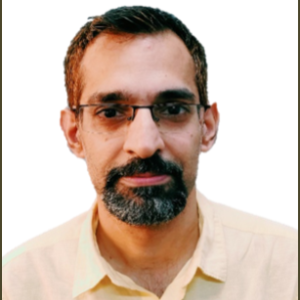Title : COVID-19 & Fungal Infections
Abstract:
The outbreak of coronavirus disease 2019 (COVID-19) caused by severe acute respiratory system coronavirus 2 (SARS-CoV-2) has been sweeping across the globe. It has been associated with a wide range of opportunistic bacterial and fungal infections. COVID-19 likely increases the risk for fungal infections because of its effect on the immune system and because treatments for COVID-19 (like steroids and other drugs) can weaken the body’s defenses against fungi. COVID-19-associated fungal infections can lead to severe illness and death. The most commonly reported fungal infections in patients with COVID-19 include aspergillosis, invasive candidiasis, and mucormycosis.
Aspergillus species could be an important cause of life-threatening infection in COVID-19 patients, especially in those with high risk factors such as steroid use, chronic obstructive pulmonary disease, hemopoietic malignancy etc. COVID-19-associated pulmonary aspergillosis (CAPA) usually occurs in patients with severe COVID-19 and can be difficult to diagnose because testing usually involves obtaining specimens from patients’ lower respiratory tract. The treatment of CAPA includes antifungals like voriconazole, posaconazole, and isavuconazole.
Patients hospitalized for COVID-19 are at risk for healthcare-associated infections (HAIs), including candidemia, or bloodstream infections caused by Candida. Diagnosis of invasive candidiasis (IC) depends on culture methods including culture of blood or other samples and nonculture diagnostic tests including mannan and antimannan IgG tests, C. albicans germ tube antibody (CAGTA), BDG and PCR-based assays.
COVID-19-associated mucormycosis erroneously referred to as “black fungus” is another fungal infection which became a major public health problem particularly in India. It is postulated that COVID-19 associated mucormycosis (CAM) is driven by complex host-microbe interactions. It may affect the lungs (pulmonary mucormycosis) but more frequently involves the nose, sinuses, eyes & brain (rhino-orbito-cerebral mucormycosis). Diagnosis is usually made by clinical findings supported by diagnostic nasal endoscopy or contrast-enhanced MRI or CT scan coupled with microbiological confirmation on direct microscopy, culture or histopathology. The treatment for mucormycosis frequently involves aggressive surgical intervention and treatment with antifungals, including amphotericin B, posaconazole, or isavuconazole.
Fungal infections resistant to antifungal treatment have also been described in patients with severe COVID-19. As clinicians, we should be aware of the possibility of fungal co-infections with COVID-19 to reduce delays in diagnosis and treatment in order to help prevent severe illness and death from these infections.
What will audience learn from your presentation?
The presentation will provide an overview of the various fungal co-infections associated with COVID-19 with special emphasis on :
- Causes/predisposing factors
- Pathophysiology & clinical presentation
- Guidelines for diagnosis & management



